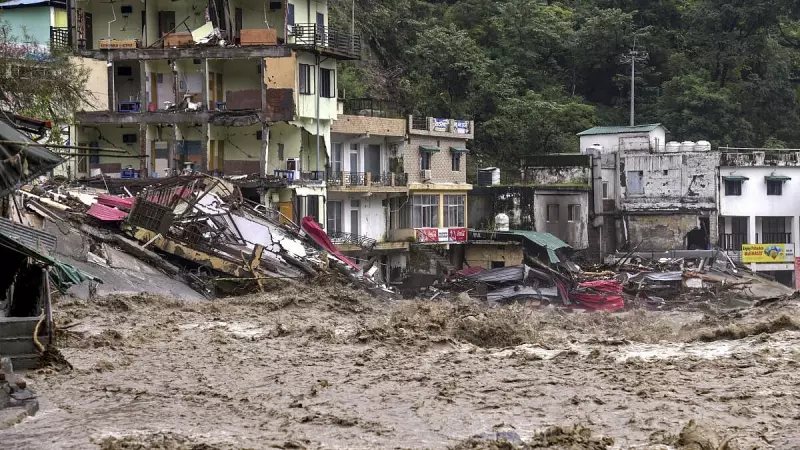
A devastating new report has revealed the staggering human cost of climate-related disasters in India, with approximately 80,000 lives lost and a massive 1.3 billion people affected since 1995. The findings highlight India's vulnerable position among nations most severely impacted by the escalating climate crisis.
India Among World's Most Affected Nations
The comprehensive analysis, released in November 2025, places India in the grim company of the ten countries most affected by climate disasters over the past three decades. The report identifies Dominica as the most impacted nation worldwide, followed closely by Myanmar, Honduras, Libya, Haiti, Grenada, Philippines, Nicaragua, India, and Bahamas.
India's position at number nine on this global list underscores the country's extreme vulnerability to climate-related catastrophes, despite not being among the top five most affected nations.
Three Decades of Climate Devastation
The data covering the period from 1995 to 2025 paints a disturbing picture of India's battle against increasingly frequent and severe weather events. The report documents how climate-induced disasters including cyclones, floods, droughts, and extreme weather events have collectively impacted an astonishing 1.3 billion Indians over the thirty-year timeframe.
The death toll of approximately 80,000 individuals represents a tragic human consequence of the changing climate patterns that have battered the Indian subcontinent with growing intensity. These figures reflect only direct fatalities and do not account for subsequent deaths from disease, malnutrition, or other indirect consequences of these disasters.
Global Context and Regional Impact
While small island nations like Dominica and Caribbean neighbors Grenada and Bahamas face existential threats from rising sea levels and intensified hurricanes, India's massive population means that climate disasters affect an unprecedented number of people. The report confirms that the climate emergency is truly global in scope, affecting nations across economic spectra and geographical locations.
The findings arrive at a critical moment for international climate policy, serving as a stark reminder of the urgent need for both adaptation measures and accelerated climate action. With India experiencing some of the world's most pronounced climate impacts relative to its population size, the report underscores the necessity for enhanced disaster preparedness and climate-resilient infrastructure development across the country.
As climate scientists continue to warn about increasing frequency and intensity of extreme weather events, this report provides concrete evidence of the human tragedy already unfolding across India and other vulnerable nations worldwide.





